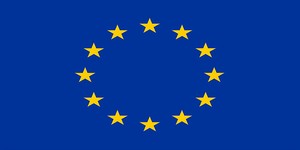
Advertising giant Google has been put on the hook for a £130 million tax bill, following a six-year investigation into the company's tax-dodging habits - but it's equal to a fraction of what the company would have owed had it paid the proper rate of tax from the start.
Like many multinational companies, Google has various methods of minimising its tax burden. The biggest, and most controversial, is in diverting income made in one region through a different region which boasts a lower tax rate; in Google's case, diverting UK profits through an Irish subsidiary, then through a further Dutch subsidiary, then back to Ireland again with the tax minimised.
Google is far from alone in using such geopolitical trickery to maximise profits, but it is one of the largest companies to have been called to task by Her Majesty's Revenue and Customs (HMRC) on the matter. Following a six-year investigation, Google has been told to pony up £130 million in back taxes and to pay a more proper rate of taxes going forward - something to which the highly profitable advertising company has agreed.
While the settlement may sound impressive, however, it's a small fraction of the cash Google would have paid had it been paying a proper tax rate since the backdated tax cut-off of 2005. Estimates of the company's actual liability for the period sit at £2 billion, of which it had paid a mere £200 million - leaving it sitting pretty on full £1.67 billion saving in its back payments as a result of the deal. Thus far, HMRC has not published details of its investigation nor on how the £130 million payment figure was calculated.
Google generates more than £2 billion in profits from the UK each year.
Like many multinational companies, Google has various methods of minimising its tax burden. The biggest, and most controversial, is in diverting income made in one region through a different region which boasts a lower tax rate; in Google's case, diverting UK profits through an Irish subsidiary, then through a further Dutch subsidiary, then back to Ireland again with the tax minimised.
Google is far from alone in using such geopolitical trickery to maximise profits, but it is one of the largest companies to have been called to task by Her Majesty's Revenue and Customs (HMRC) on the matter. Following a six-year investigation, Google has been told to pony up £130 million in back taxes and to pay a more proper rate of taxes going forward - something to which the highly profitable advertising company has agreed.
While the settlement may sound impressive, however, it's a small fraction of the cash Google would have paid had it been paying a proper tax rate since the backdated tax cut-off of 2005. Estimates of the company's actual liability for the period sit at £2 billion, of which it had paid a mere £200 million - leaving it sitting pretty on full £1.67 billion saving in its back payments as a result of the deal. Thus far, HMRC has not published details of its investigation nor on how the £130 million payment figure was calculated.
Google generates more than £2 billion in profits from the UK each year.

MSI MPG Velox 100R Chassis Review
October 14 2021 | 15:04








Want to comment? Please log in.